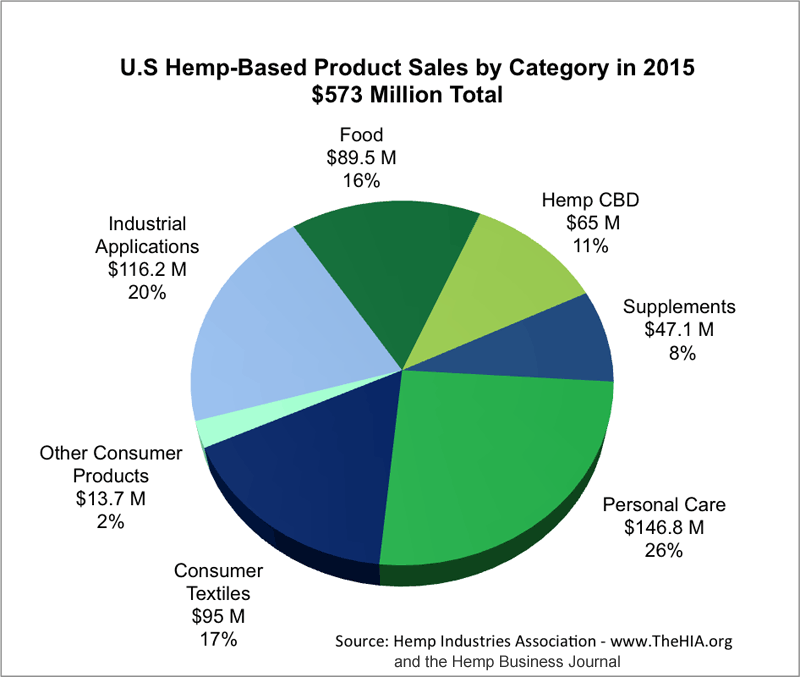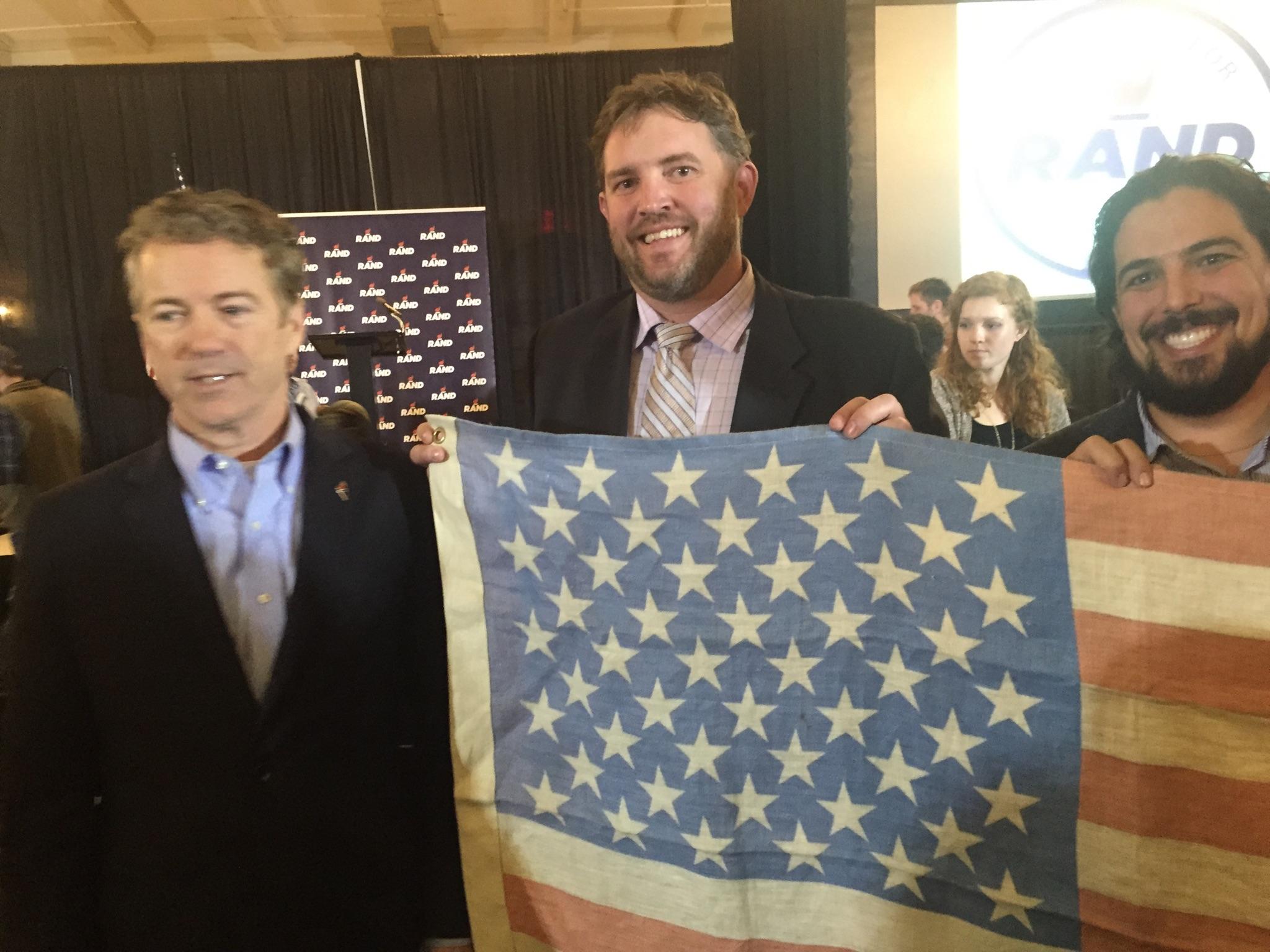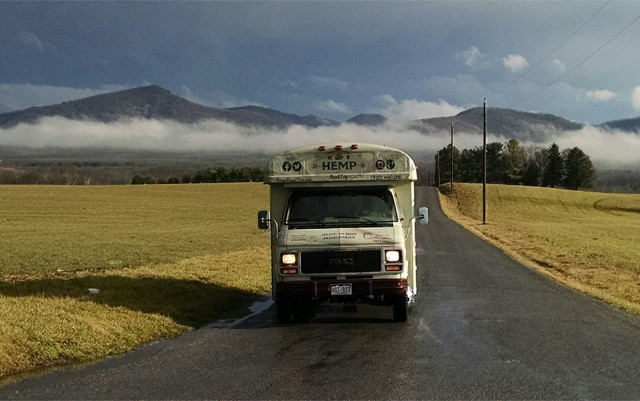Hemp history week begins June 6, and one hemp businessman and activist is driving across the country for the second phase of his Hemp Road Trip, to show America the power of industrial hemp. It’s a grassroots campaign to end the prohibition of hemp through education and gathering commitments from lawmakers to co-sponsor the Industrial Hemp Farming Act of 2015. Currently, the proposed legislation has fourteen Senators and sixty-nine Congressional cosponsors on board.
“The number one myth is that hemp is a drug like marijuana – that it gets you high,” says Rick Trojan. Earlier this year, on the first leg of his Hemp Road Trip, Rick found a lot of misconceptions about the plant. “Many farmers don’t even know they can receive more subsidies than with corn,”explains Rick, “It’s a new option for many states, for example, in the Carolinas it could be used as construction material.”
The Hemp Road Trip was founded by Rick Trojan and kicks off in San Diego on June 6. Rick, a former software businessman who has since sold his lucrative healthcare software company, now owns land in northern Colorado where he grows the cash crop. “You can smoke all 3 acres of my hemp farm and your lungs would give out before getting high,” says Rick. With less than 3 percent THC, it’s not meant to get you high like it’s plant-cousin marijuana. Although, the two do come from the same cannabis species, they are genetically different. They also differ in use and cultivation methods.
It’s strictly regulated and flat-out banned in most states due to the 1937 Marijuana Tax Act, a law that affects all types of cannabis. “Both the beauty and challenge of going around the country”, explains Rick, “is that the plant can do so many different things. It’s a matter of seeing how it would benefit each state.” Unfortunately, hemp is severely restricted as it’s classified as a Schedule I substance under the Controlled Substances Act, as is marijuana.
After being shelved as an illegal resource for over 25 years, most people have forgotten its industrial roots. Despite severe restriction on domestic hemp, hemp fibers and seeds are popular health supplements and can be used in body care, food, textiles and building materials. In 2015, the Hemp Industry Association estimates annual retail sales for hemp products at $573 million.

That’s why Rick founded The Hemp Road Trip. The first phase took Rick and his team on a journey covering more than 10,000 miles, spanning twenty-six states, eight presidential campaign events, and only three van breakdowns! The first leg of the trip, from January until April, afforded the outspoken hemp advocate two visits to Washington, D.C. to speak with legislators and the opportunity to testify before the Kansas House Commerce Committee about the 2015 Industrial Hemp Farming Act, which would allow all states to grow hemp and create and sell hemp-based products.
Actually, Rick spoke to anyone who would listen. One farmer he met on the road when the bus broke down in Iowa engaged him in conversation. “I remember he was wearing overalls and asked what I do,” Rick continued, “and once I told him, the driver wouldn’t shake my hand.” The farmer thought marijuana residue would rub off somehow, as if touching someone who was in contact with the plant would make him test positive for THC and lose his job. “After I educated him on the benefits of farming hemp, how it uses less water and pesticides, he came around.” The farmer’s hesitations were out of ignorance.
A great success story of his first Hemp Road Trip was his visit to Kansas. Known as an anti-cannabis state across the board, Rick testified before the state legislature about economics, jobs, and overall benefit of hemp to Kansans. He worked with Representative Willie Dove, a Republican in the State House and Majority Whip who supports industrial hemp.
Since the first trip, Virginia, Pennsylvania, and Alabama have authorized legal hemp cultivation. Also, 9 lawmakers have become co-sponsors of the bill. The new Senate co-sponsors are; Mazie Hirono (D-HI), Tim Murphy (D-CT), Kirsten Gillibrand (D-NY), and Brian Schatz (D-HI). The new Congressional co-sponsors include; Rick Nolan (D-MN), Paul Tonko (D-HI), Tony Cardenas (D-CA), and Mark Takai (D-HI). About to embark on the second phase of the Hemp Road Trip, Rick hopes to continue the momentum. The second leg of the Hemp Road Trip began on June 3 for a West Coast tour of Nevada, California, Oregon, Utah, Wyoming, South Dakota and Colorado. Then he’s driving the van – full of educational materials, including hemp products – to Republican and Democratic Conventions, in Cleveland and Philadelphia.
The first trip was during the height of campaign season, with over a dozen candidates still in the race. Most notably, the Hemp Road Trip took Rick to the rallies of Democratic candidate Bernie Sanders, and Republican Senator Rand Paul (R-KY) who has since dropped from the race. Sanders has signed on to the Act and both Sanders and Paul have signed onto S.1333, Therapeutic Hemp Medical Access Act of 2015, the act that would take it off the Controlled Substances Act. Undoubtedly, Sanders is the only candidate Rick and other hemp supporters are endorsing for the 2016 election.

“It’s an adaptable plant, it would give states a new source of revenue and create jobs,” says Rick. Hemp cultivation is permitted on only a handful of states including; California, Colorado, Hawaii, Indiana, Kentucky, Maine, Montana, Nebraska, North Dakota, Oregon, Utah, Vermont and West Virginia.
It’s to be seen what forces will use their lobbying power to slow the growth of domestic industrial hemp cultivation. Hemp can compete with heavy hitting industries like big oil, timber and tobacco. “Over the next year or two we will probably see them more and more,” warns Rick.







One correction. Pennsylvania has not yet authorized hemp cultivation. Senate Bill 50 passed in the senate 47-0 and House Bill 967 passed 187-0. Now both bill sit in their opposite ag committees but there is competition. We are victims of our own success. Both the senate and the house want credit for it since there is such unanimous support. The senate just came back from recess today and we had a hemp history event in the capitol to push the bill over the finish line. We are near 100% certain it will pass but it’s they’ve been taking their time lately.
Our politicians made this plant illegal almost 100 years ago.It’s way past due that they undo their unjust laws & make it legal again.One only needs to study the effect it has on the economy to know how much potential it has.The state’s that have already legalized it will greatly benefit from this cash crop.